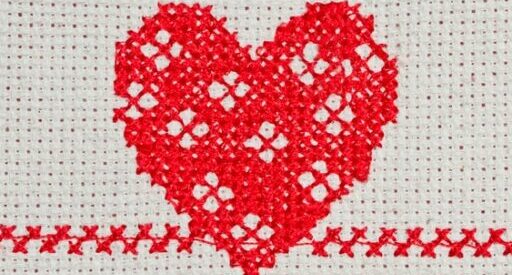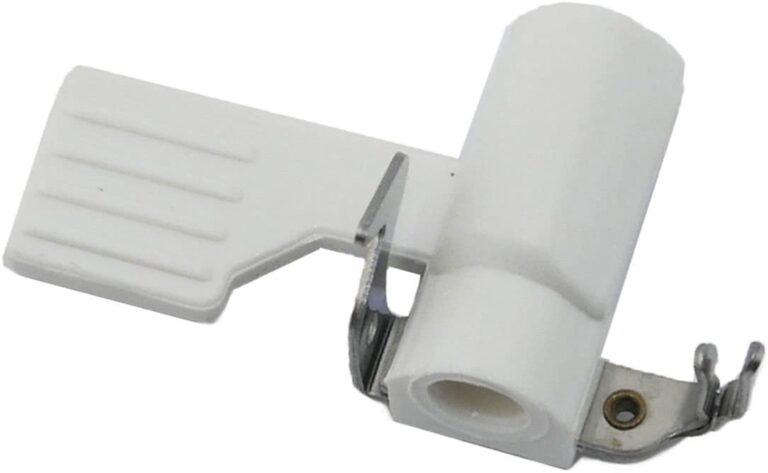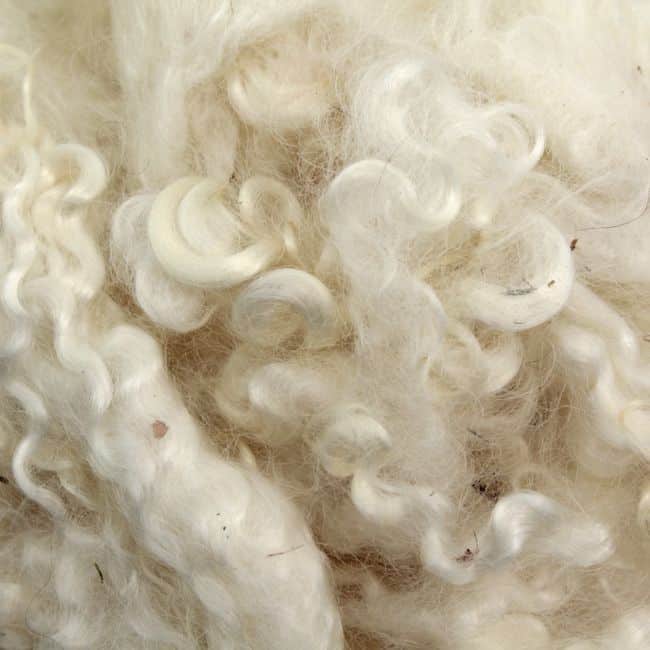5 Best Fabrics for Blankets
| Fabric | Features | Recommended Use |
|---|---|---|
| Polar Fleece | Medium weight, soft, anti-pill, 100% polyester | Everyday blankets, throws |
| Figo Glasshouse | Lightweight, easy to sew with, 100% cotton | Quilts, pillow covers, crafts |
| Embbrace Double Gauze | Lightweight, soft, durable, 100% cotton | Baby blankets, bibs, burp cloths |
| Shannon Minky Luxe | Very soft, heavyweight, swirl/marble patterns, 100% polyester | Children’s/baby blankets, throws |
| Wool Coating | Heavyweight blend of wool and polyester, felted, tightly woven | Warm and insulating blankets |
Note: The recommended uses are suggestions based on the fabric properties mentioned in the reviews.
Table of Contents
Best Fabric for Blankets
Here are our fabric for blankets reviews
1. Polar Fleece
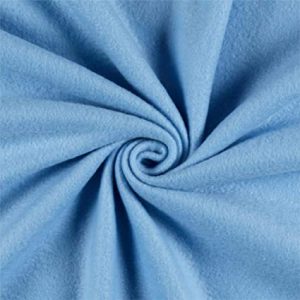
Fleece is one of those iconic fabrics that immediately invokes thoughts of comfort and warmth. Polar fleece is a good fabric to use for making many different types of blankets. Multiple layers of fabric could be sewn together or paired with another fabric for a heavier blanket, or make a lighter weight throw.
- This polar fleece fabric is medium weight and is 100% polyester
- Fabric is extremely soft and is anti-pill
- Machine wash, and tumble dry on low heat
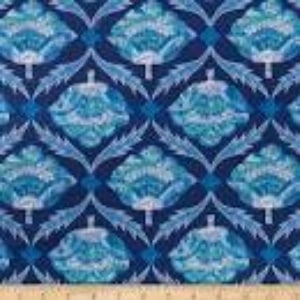
Quilting cotton is also one of those better known fabrics for making blankets, specifically quilts. Quilting cotton is generally lighter weight, but is still durable, is usually easy to sew with, and comes in a massive variety of colors and patterns. One of the best parts about quilting cotton is that it is usually very affordable and can generally be purchased in larger quantities and in many different widths. Quilting cotton even comes in extra wide widths that can be used to make sewing a quilt or blanket backing much easier.
- This fabric is lightweight, is easy to sew with, and is made from 100% cotton
- Cotton is very versatile and this fabric can be used for quilting, pillow covers, bed skirts, crafting projects, and more
- Machine wash cold, tumble dry on low heat
3. Embrace Double Gauze
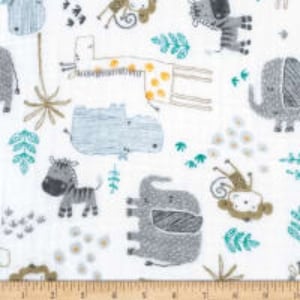
Double gauze is a popular choice, especially for new parents or those with little ones. Double gauze can be used to make all different types of projects, but it is most popular for baby blankets and receiving blankets. It can also be used to make bibs, bedding, burp cloths, and for other sewing projects. Double gauze is generally very durable and washes well.
- Machine wash on cold and hang to dry- do not use chlorine bleach
- This lightweight fabric is made from two layers of gauze that have been tacked together- it is 100% cotton and is very soft
- This line of fabric comes in fifty-five different colors and prints
4. Shannon Minky Luxe Cuddle Sorbet
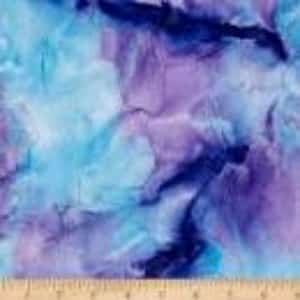
There are many different types of minky fabric. Minky fabric can be extremely soft and lush. It might be on the pricey side to make a huge blanket out of some minky fabrics, but throws or smaller blankets, like children’s or baby blankets, can often be made with minky.
- This line of uniquely swirled or marble patterned minky was designed to mimic sorbet and comes in over fifteen different color blends
- Machine wash, tumble dry on low heat
- This fabric is very heavyweight and is made from 100% polyester
5. Wool Coating
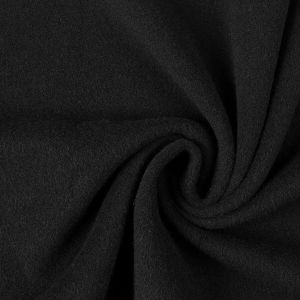
Wool is a classic fabric for making blankets. Wool is a great insulator because of the way the fibers trap air, which means that cold air stays out and warm air stays in. Wool is also absorbent, which keeps skin from getting damp below. Wool also makes great blankets because it tends to resist odours. This Melton wool blend can also be washed at home.
- This fabric is a heavyweight blend of 80% wool and 20% polyester, and is very tightly woven
- Machine wash on cold, tumble dry on low heat
- This particular wool is good for making a blanket because the fabric has been felted, which means that it’s extremely soft
Fabric for Blankets Buying Guide
Many different fabrics can be used to make a blanket. Natural fibers like cotton, wool, linen, hemp, and bamboo can be used, as can synthetic fibers like polyesters. Natural fibers have many great beneficial qualities. They tend to breathe well, some resist odors, and some are moisture wicking. Synthetic fibers like fleece and minky can be made to be very soft and cuddly, and also very warm. You will have to determine which materials and which fabric is right for you based on lifestyle, climate, and often personal preference.
Type of Blanket
Blankets come in all different shapes, sizes, and styles. Blankets can be quilted, industrial, filled with down, sewn with multiple layers, or even weighted. Blankets come in all different sizes, so the type of fabric needed to make one will often depend on the kind of blanket, who the blanket is being made for, the climate, budget, and how much wear the blanket will need to withstand, as well as the ease of washing desired.
Cost and Versatility
Blankets can be made on just about any budget, but the budget might decide the type of blanket being made. For example, making a king sized blanket out of some more expensive fabrics like some lines of minky or even some lines of linen or wool, might not be feasible nor desirable. The filler (if any) for the blanket will also need to be taken into account for budgeting. If a large blanket is desired, on a smaller budget, look for fabrics like quilting cotton or even some fleece, wool, and flannel can be purchased quite inexpensively, but there are other fabrics that are affordable too.
Recommended Reading:
